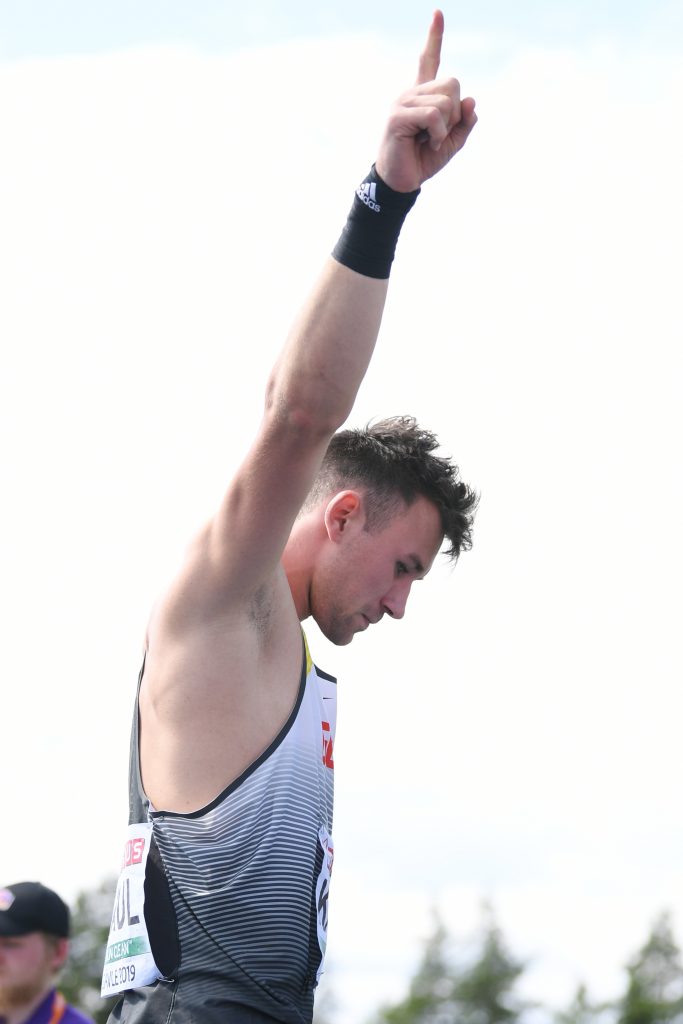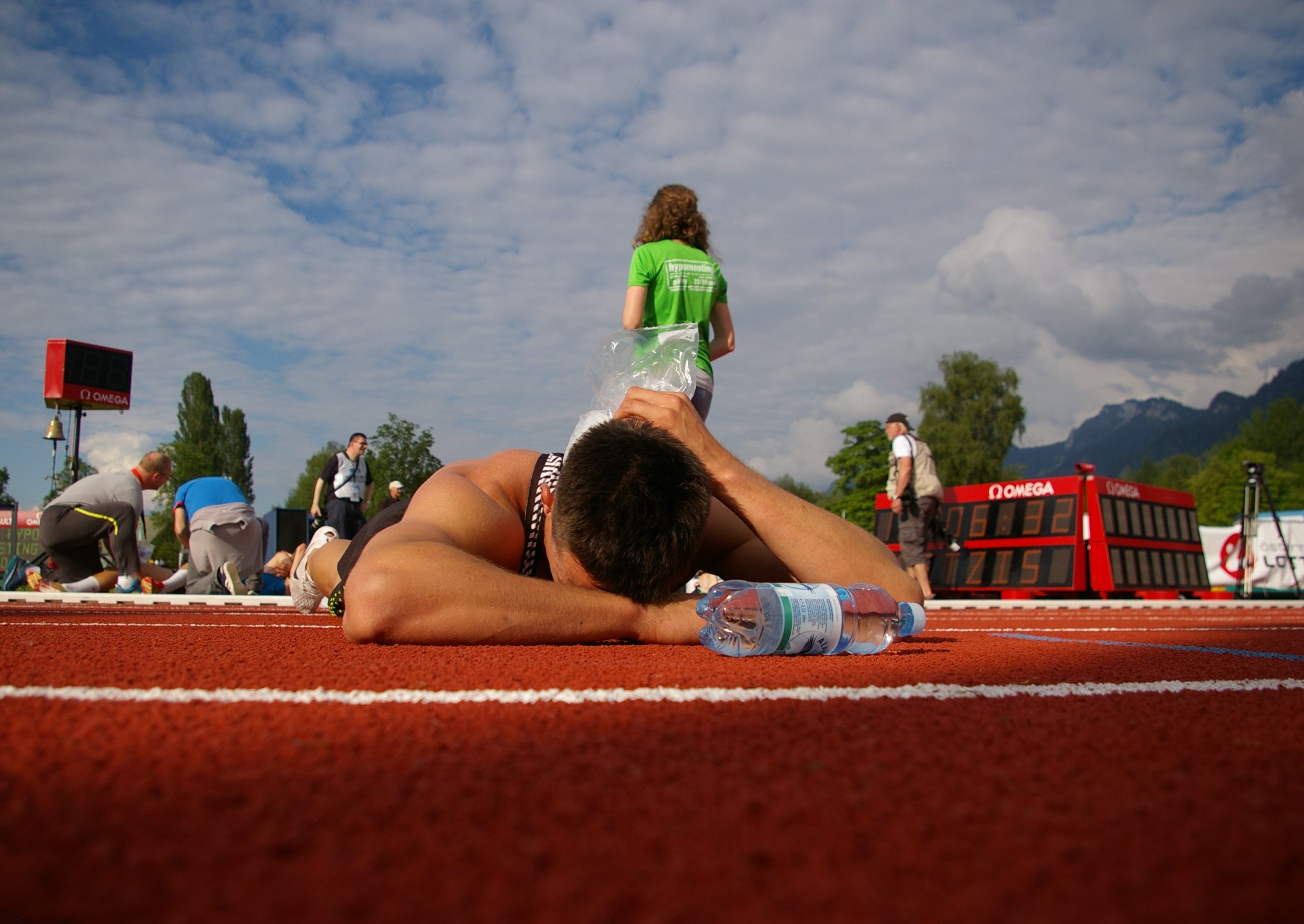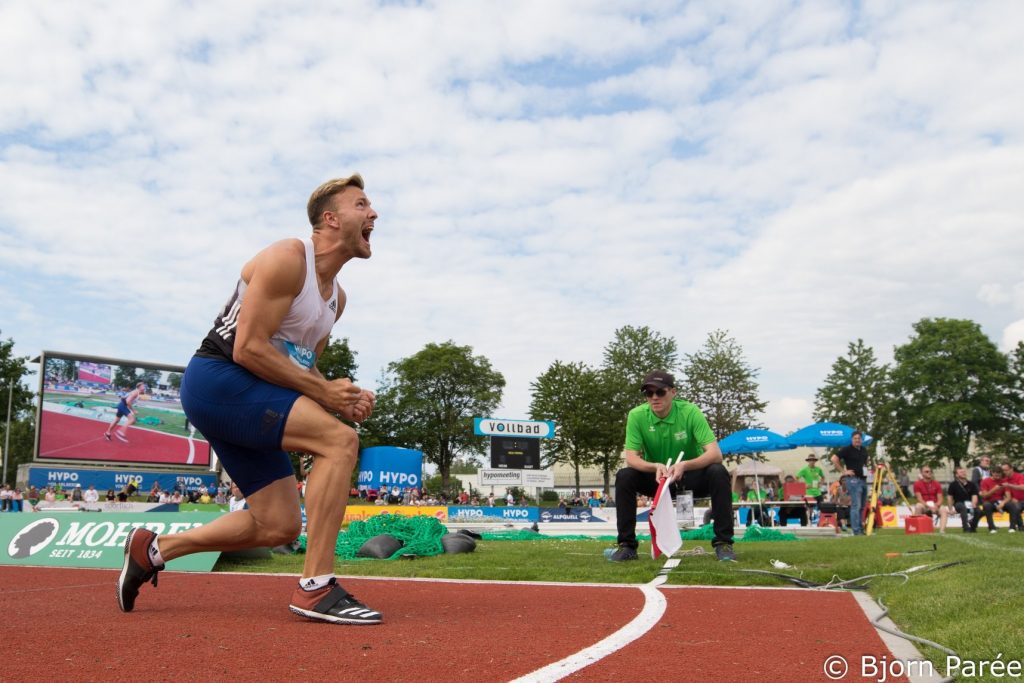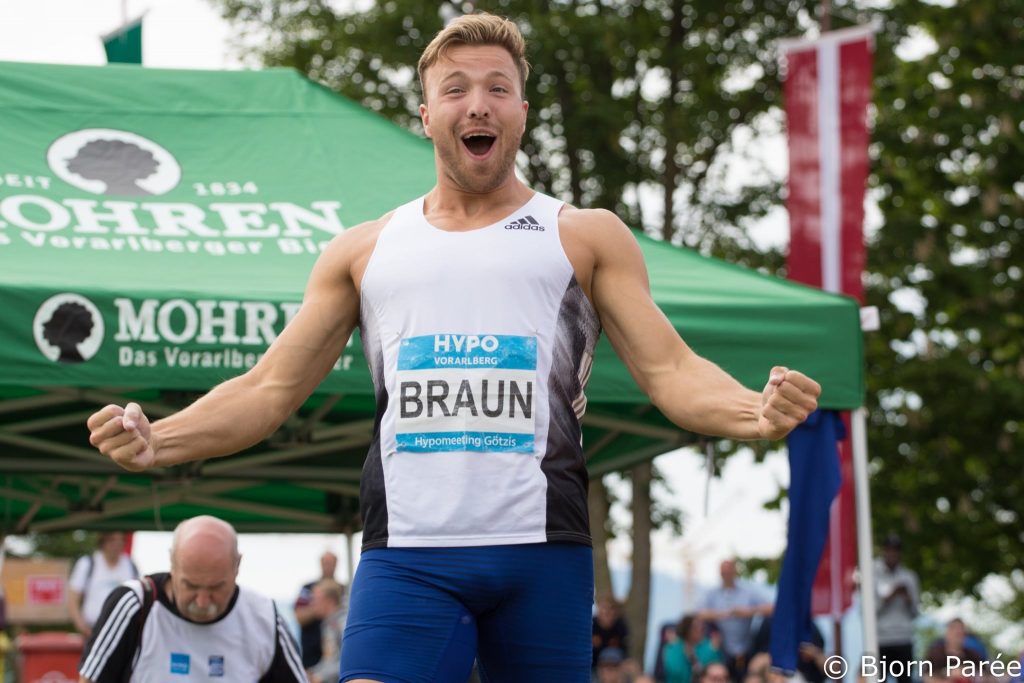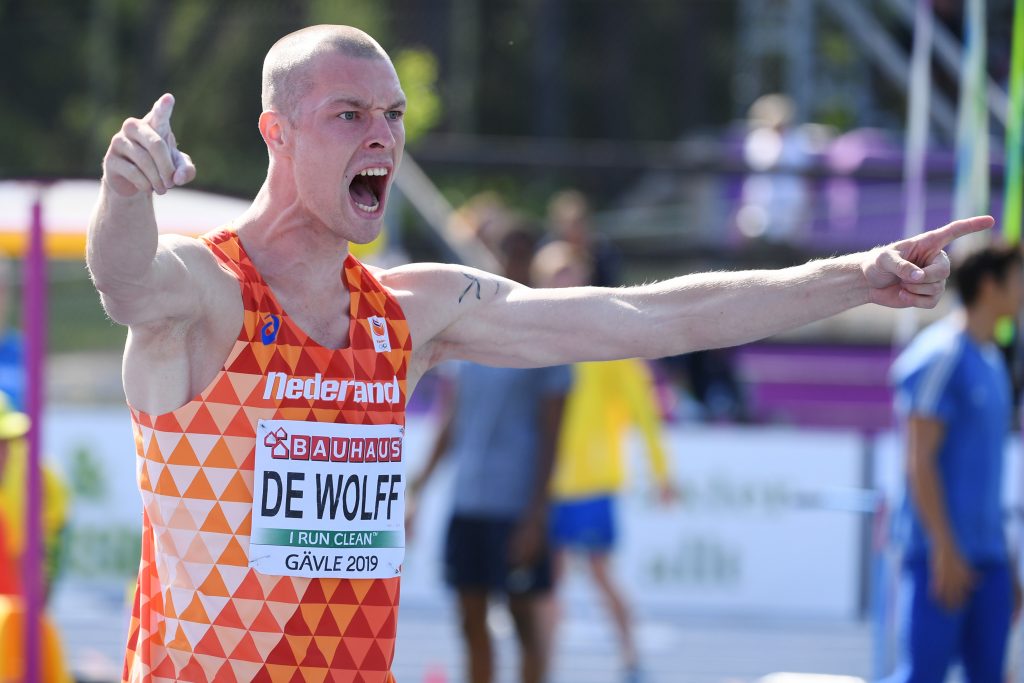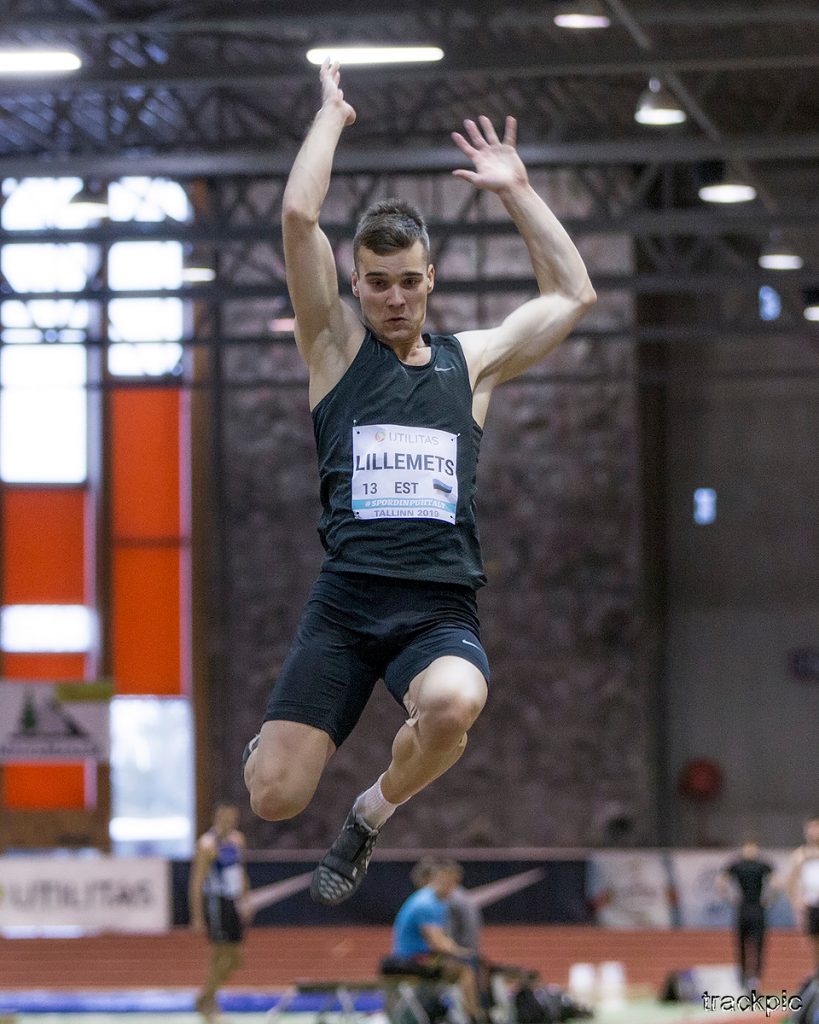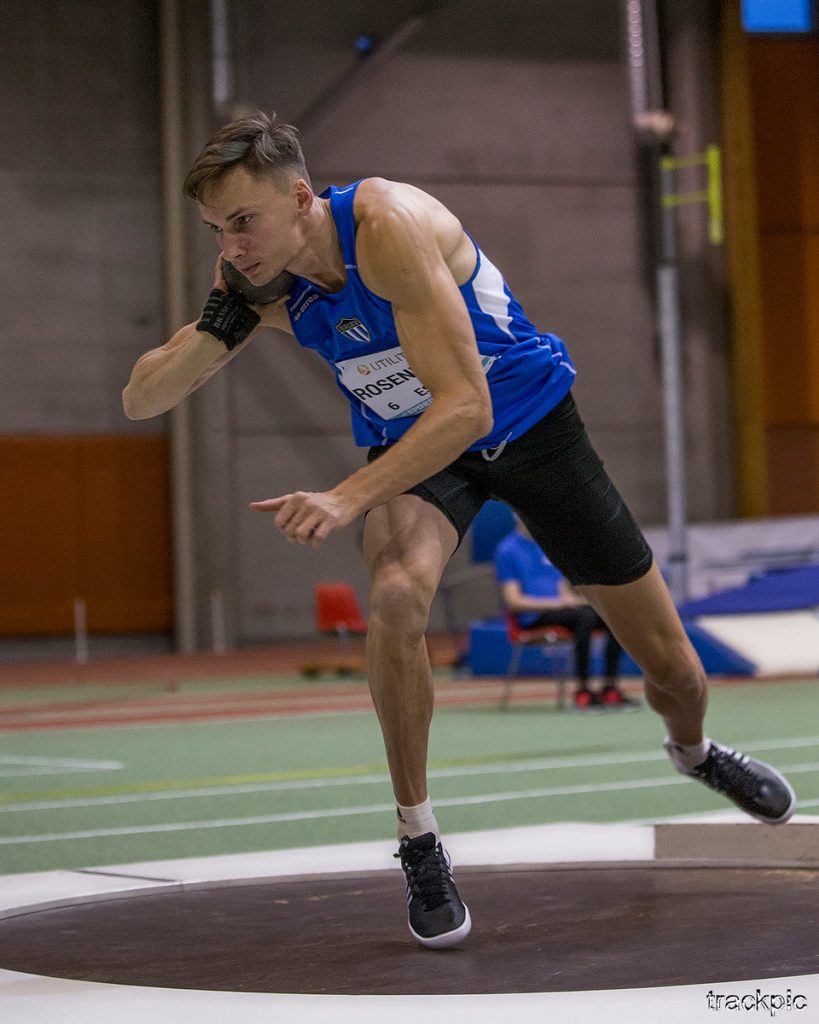It was a long, long year to Doha. It’s usually time to hang up the competition kit and all the many, many decathlon shoes once Talence is done in September. But this year Décastar moved temporarily to June to accommodate the late World Championships in October. And so Décastar, quickly followed by Ratingen the following weekend, in effect marked the end of the first phase of outdoor competitions for the year. We then moved into championships mode in July and August, with the European U20 and U23 age group competitions in Sweden, the edge-of-your-seat US Nationals, a chilly warm up for Doha at the Pan American Championships in Lima, and some guest spots at various points on the Diamond League circuit. Despite the long lead-in time, the scramble for places in Doha for those who hadn’t hit 8200 in the qualifying portion of 2018 or in 2019 concluded just a few weeks ahead of time when the final 24 – rather than the usual 36 – were named. Here’s the story of 2019, nation by nation.
SPAIN
The first big mark of 2019 actually came in 2018. It belonged to Spain and Jorge Ureña who went on to dominate the indoor season. His opener of 5979 in Valencia in December 2018 was complemented beautifully by European Indoor gold in Glasgow a few months later. Jorge’s form was promising in the first half of the year – top ten in Götzis and predictions that he could top 8400 if all went to plan – but with some bad luck, including the weather, he ran out of time to secure a mark to qualify for Doha and was the highest profile casualty of the limitations placed on the field size for the World Championships. Spain did well in 2019 in terms of medals in the combined events – Maria Vicente won gold at the Euro Under 20s – and in addition to Jorge a number of other decathletes had promising performances, including Pablo Trescoli who set a suite of PBs in Arona and at the European Combined Events Team Challenge Super League in Lutsk. Pau Tonneson announced his retirement from the sport, following a year out to focus on pole vault and another struggling with injuries.
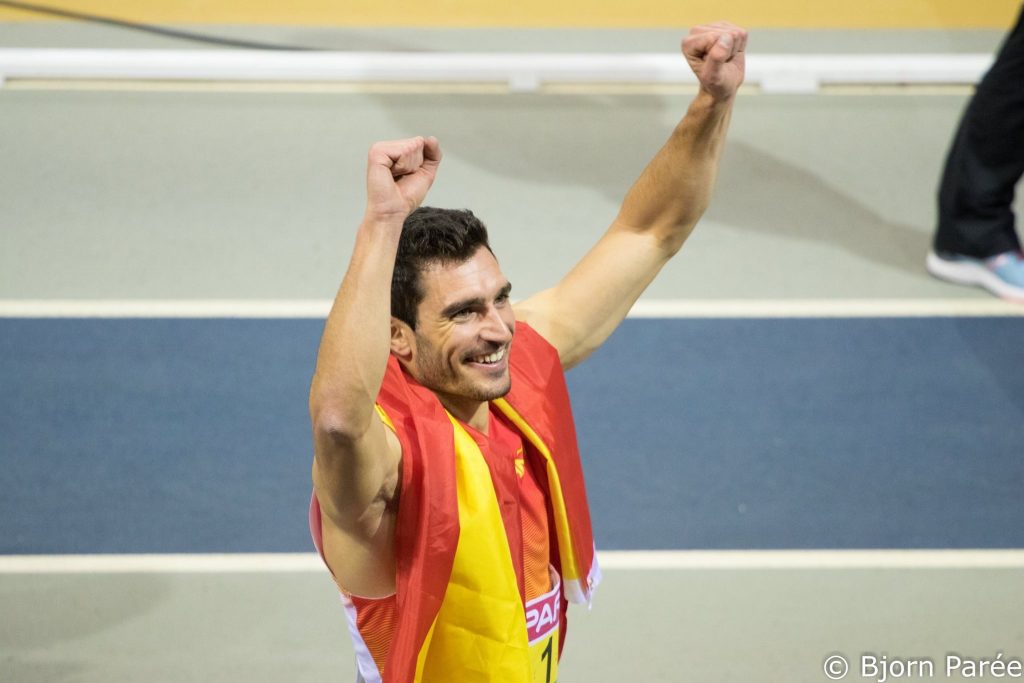
BELGIUM
While Jorge took home the prize for Spain in the indoor season, Thomas Van der Plaetsen threatened to bring the strongest challenge with his early season indoor form, including a 6132 score at the Belgian champs in February. A niggle during competition in Glasgow put paid to a medal, and that set something of a pattern for his season. His attempt to secure a qualifying mark for Doha was going brilliantly in South Africa before a power cut struck. A nail-biting, brilliant competition in Talence – including a 5.45 pole vault – finally delivered the score he needed, but his preparation for Doha was again hampered. Top ten in the world would have to do for now – he finished 9th in Doha – but TVdP kept us fantastically entertained throughout the year with his electronic super-Mario-esque presentation of his results. Behind Thomas, Belgium had several breakthroughs, particularly Benjamin Hougardy who had an amazing first day in Talence before going on to win as a guest at the French Championships; and Jean-Baptiste Nutte who arrived on the senior scene with a bang at Multistars, and performed strongly at the European Under 23s in Gävle before having to withdraw with injury on Day 1. There was a welcome return to competition for Niels Pittomvils, and Belgian also had a new decathlon record holder in the shape of 18-year old Cassandre Evans, scoring 6577 for a Belgian record.
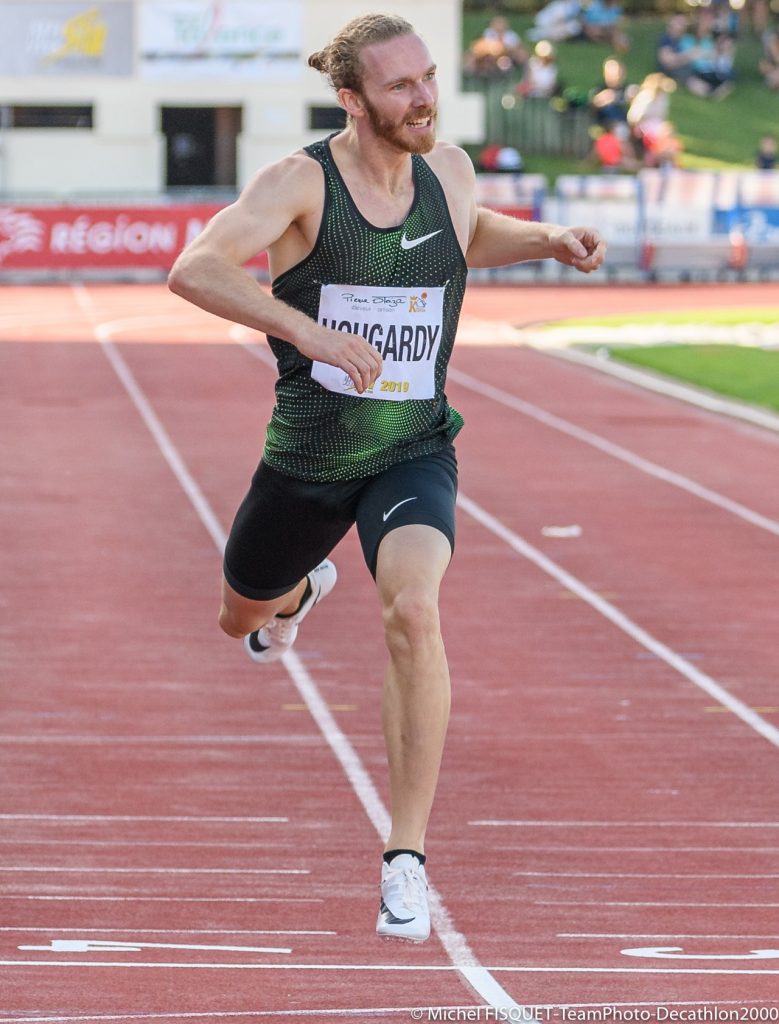
GREAT BRITAIN
Among the Brits, in the shadow of the glorious Katarina Johnson-Thompson, Tim Duckworth secured some early season honours with silver in front of a home crowd in Glasgow. His first outing at Götzis provided more of a learning experience than a vintage performance, and his first World Championships was thwarted by an injury in warm up. John Lane successfully completed two decathlons this year, the second of which included a new javelin best of 59.89 at the Combined Events Super League in Lutsk. Meanwhile, it was the Scots who were setting the records. Andrew Murphy broke Jamie Quarry’s 20-year old Scottish heptathlon record with 5662 in February, and the Scottish U20 heptathlon record was passed around like a hot potato in the first few months of the year, from Scott Brindley (5192) back to Joel McFarlane (5326) and finally to Scott Connal (5367). It’s clearly only a matter of time until there is Scottish world domination of decathlon.
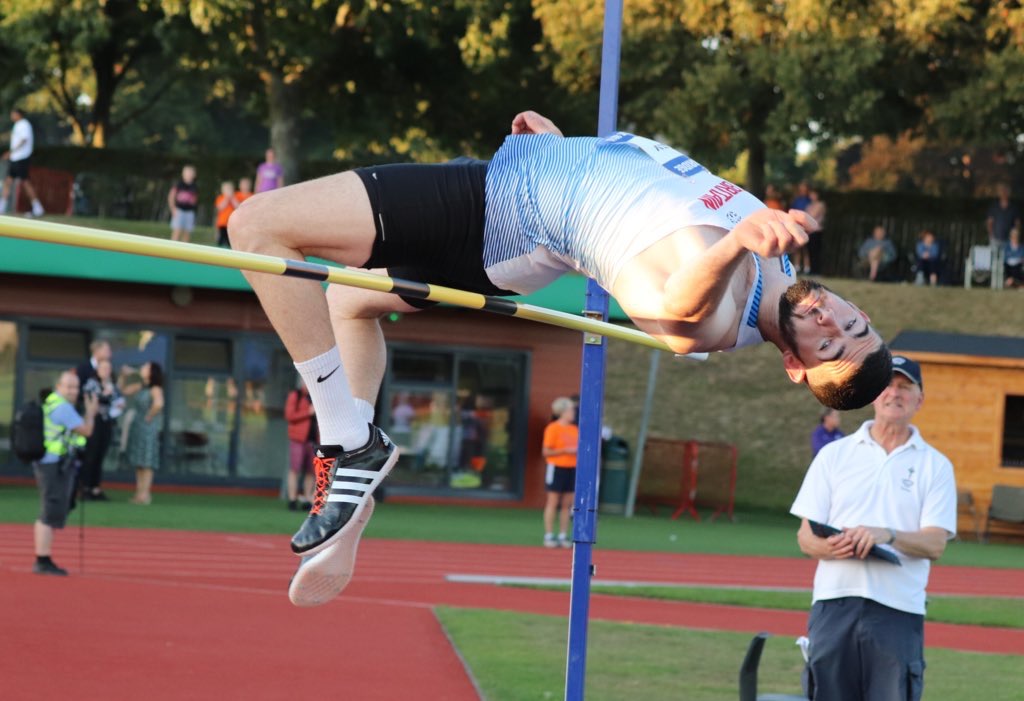
NETHERLANDS
One prediction for 2020 is that the Dutch will produce something special. Pieter Braun had a steady and solid year – 5th in Götzis and 7th in Doha – but his performances at the big meetings didn’t get as much attention as they might have done given the drama happening around him, and with much of the focus on the return of Eelco Sintnicolaas. Eelco appeared briefly in Götzis before succumbing to a cruel further injury. At the age group level, full Dutch squads went to both Borås and Gävle and both squads came back with strong results – silver for Léon Mak at U20 level and 7th and 9th for Svens Roosen and Jansons respectively; and 4th and 6th for Rody de Wolff and Rafael Rapp behind the epic battle between Niklas Kaul and Johannes Erm in Gävle. Something big is coming in Dutch decathlon.
SWITZERLAND
Rik Taam’s challenge in Gävle might have receded with his no-height in the pole vault, but the Dutchman finished his season in style by splitting European U20 champion Simon Ehammer and Taam’s fellow Gävle competitor Finley Gaio on the podium when taking second place at the Swiss Championships in Hochdorf in September. And if the Dutch are preparing for something special, the Swiss also seem to be inspired by the success of Géraldine Ruckstuhl, who took gold in the heptathlon in Gävle. Almost everything Simon Ehammer touched seemed to result in another record or personal best, both at U20 and senior level.
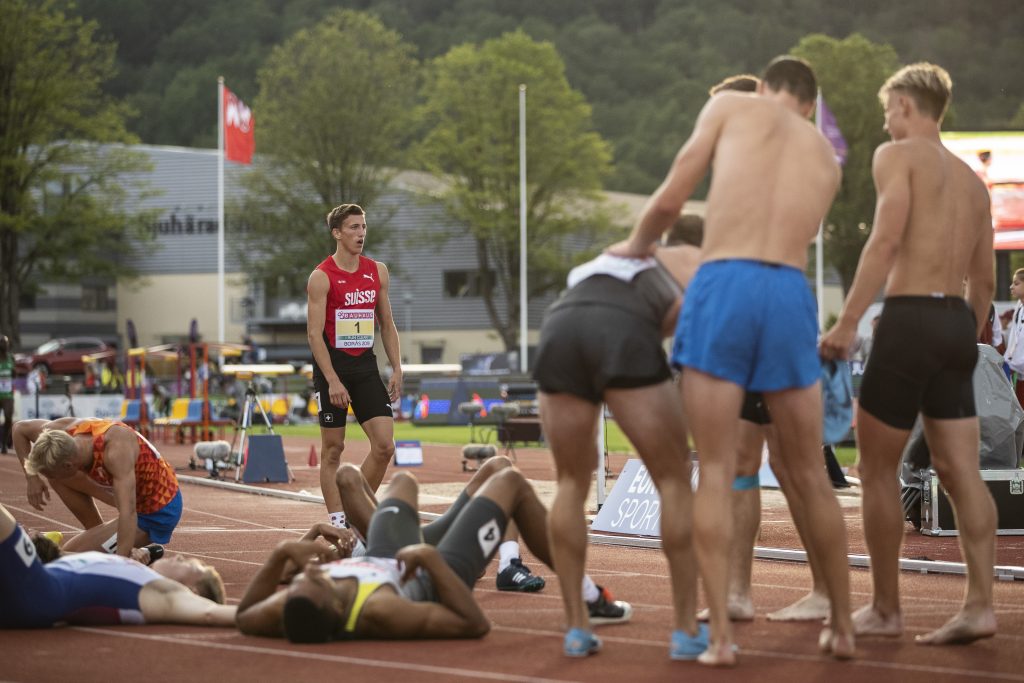
CZECH REPUBLIC
Among the Czechs, Jan Doležal and Jiří Sýkora vied for top spot in 2019, but both were impacted by the reduced World Championships field and narrowly missed the qualifying cut off for Doha. Doležal exceeded 8000 points in all his 3 decathlons of the year, winning in Lana with a great competition against Kristjan Rosenberg, and his best score of the year 8142 to with the Czech Championships in Zlin in June. Sýkora won the individual decathlon at the European Combined Events Team Challenge first league in Ribeira Brava in 8104 and scored over 6000 points to win the indoor Czech Championships and qualify for Glasgow. He was stretchered off in Glasgow during the pole vault but came back to run the 1000 and finish the competition. Adam Sebastian Helcelet spent much of this season – as he did 2018 – fighting against injuries. He has since made some changes in his training to tackle the source of his problems in his back – too late for Doha, but with positive ambitions for 2020 including top 5 at the World Indoors and top 8 in Tokyo.
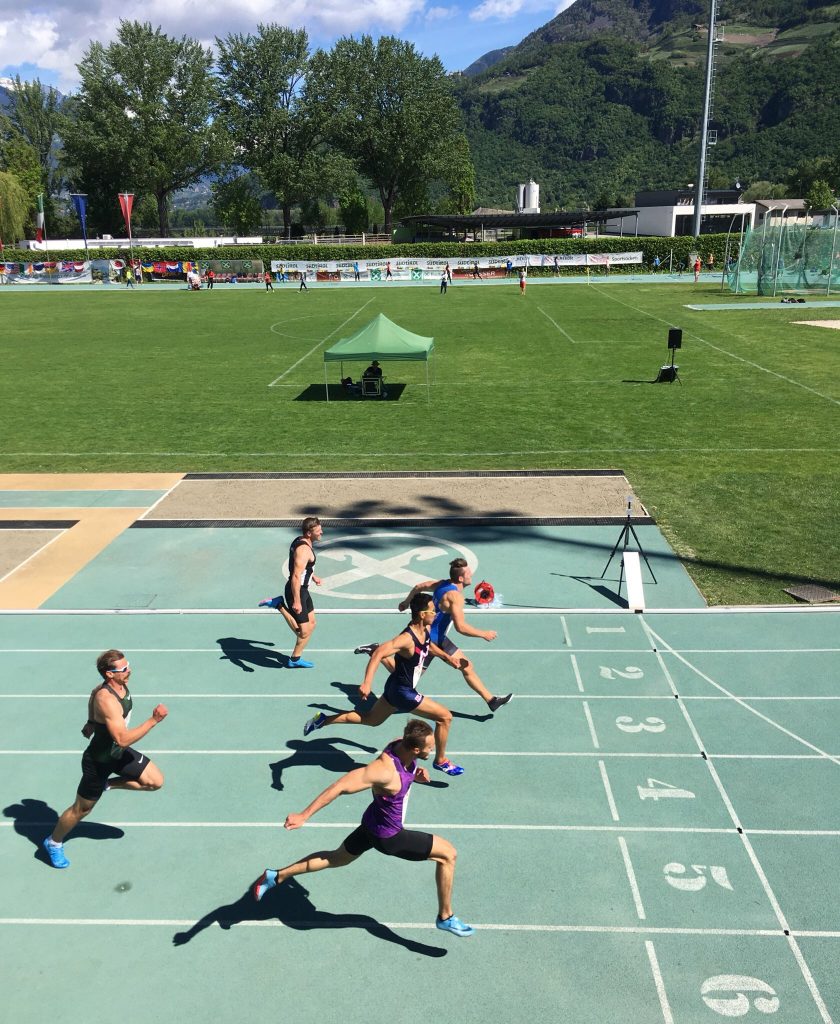
NORWAY, SWEDEN
Martin Roe’s season was weighted towards the early meets of the year, competing in Lana, Götzis and Arona following his 7th place finish in Glasgow after departing the high jump covered in blood and with a hole in his head. His run of bad luck followed him to Lana where he was still recovering from illness (finishing 4th) and his year ended with a DQ in the 400m in Doha. His best performance came when winning in Arona in 8037, pushed hard – like Doležal in Lana – by Kristjan Rosenberg. At junior level his Norwegian teammate Markus Rooth took an excellent bronze at the European Under 20s – logging 4 PBs including a 20s improvement to his 1500m time – after winning the early season Arcadia Invitational in California in April. Sweden’s Fredrik Samuelsson’s highlight of the year coincided with a moment of heartbreak, as he set a lifetime heptathlon best of 6125 in Glasgow, but finished just 20 points outside the medals.
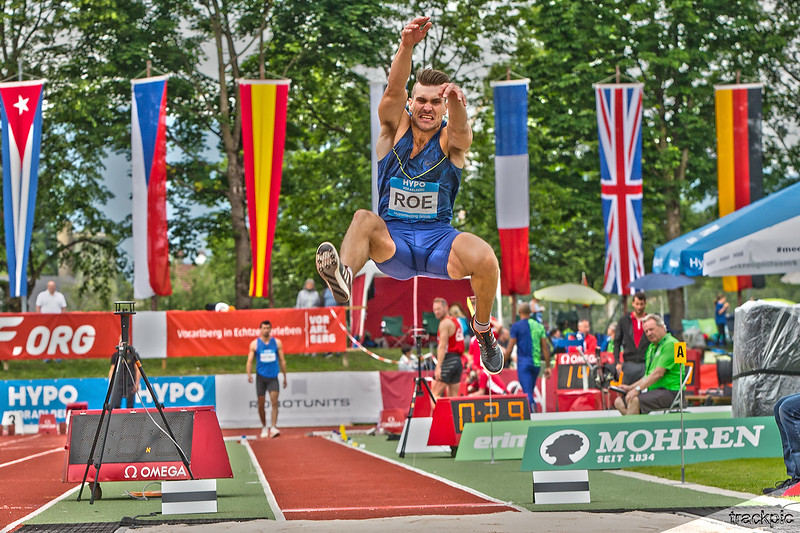
POLAND
Paweł Wiesiołek set a lifetime best of 8204 at the Polish Championships in Krakow in early June to secure automatic qualification for Doha. In his 5th decathlon of the year, he finished 12th at the World Championships in 8064. Behind him, in second place at nationals, Rafał Horbowicz also scored a PB of 7549 and went on to finish 11th at the European Under 23s.
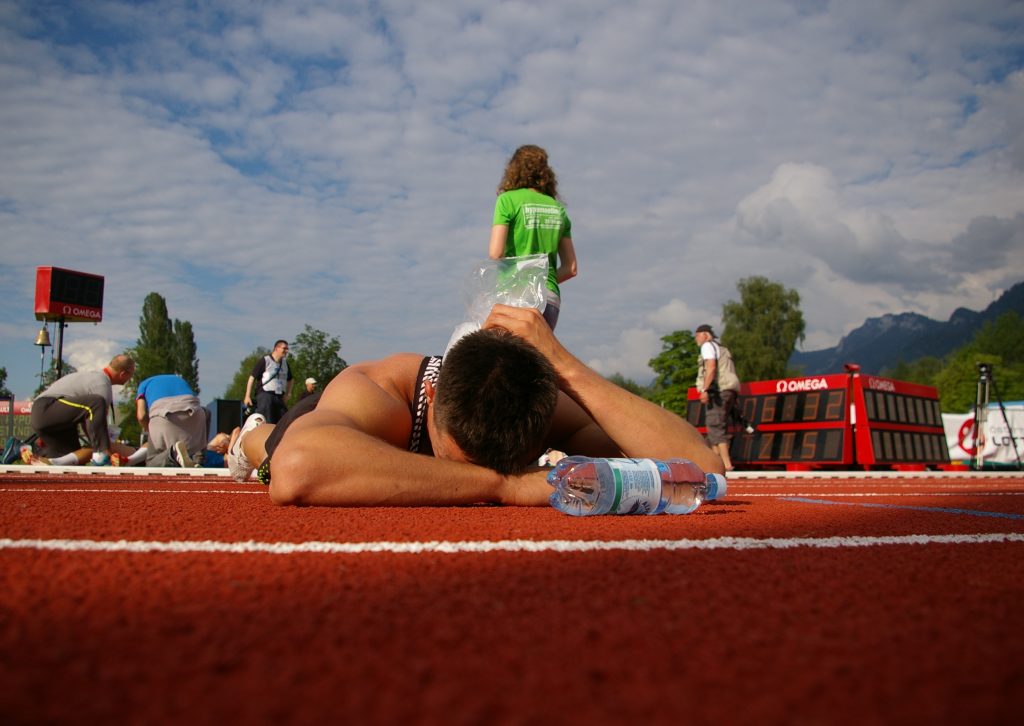
RUSSIA, UKRAINE
The Russians – competing as Authorised Neutral Athletes – brought a strong challenge in 2020. Ilya Shkurenyov’s season was characterised by immaculate timing, while Artem Makarenko’s was the opposite. Shkurenyov got it right when it mattered, with his best performances indoor in Glasgow to take bronze behind Ureña and Duckworth, and in Doha to finish 4th behind Kaul, Maicel Uibo and Damian Warner. In between, he had a lacklustre competition in Götzis, finishing only 16th and was a DNF in Talence. Makarenko, on the other hand, looked consistently impressive throughout the year, but suffered three no-jumps in the long jump in Götzis and withdrew after the high jump in Gävle (after finishing 4th in the 110 hurdles final earlier in the competition). He also lost out by just a few days in securing eligibility for Glasgow during the indoor season; and ended the year without a decathlon mark. The next generation of Russian athletes were presented at junior level with Aleksandr Komarov, Stepan Kekin and Andrey Rodikov competing in Borås.
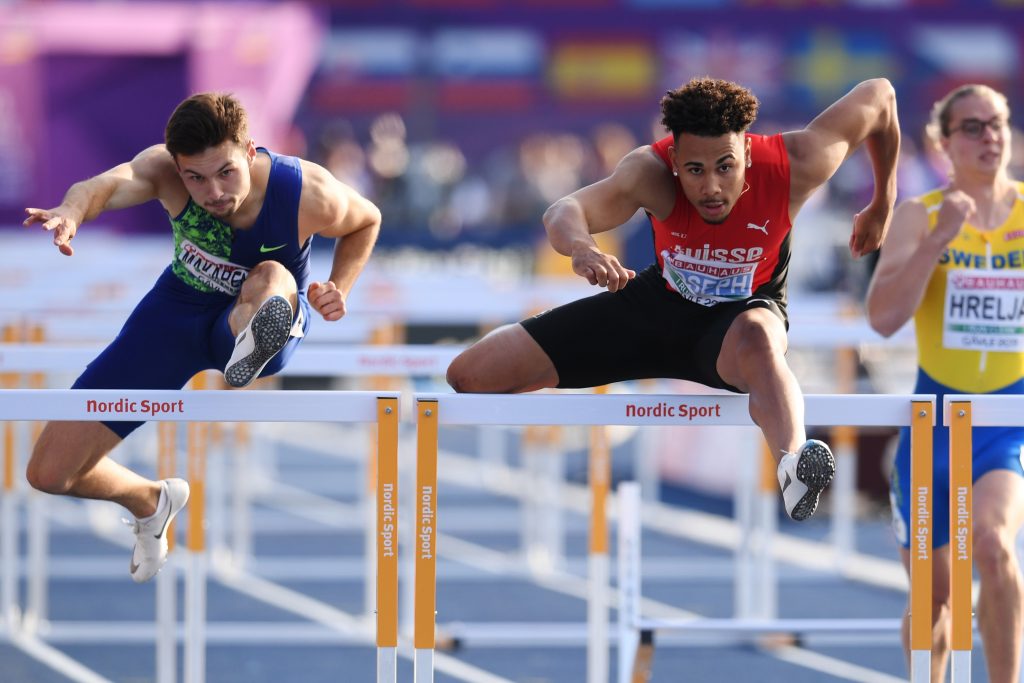
Makarenko was not the only decathlete who excelled at the hurdles in 2019 but struggled for a good decathlon performance. Oleksiy Kasyanov competed in the individual hurdle events at the European Indoors but finished 21st in Götzis and didn’t make the cut for Doha. And, of course, there was the world record holder.
FRANCE
Ahead of his competition in Talence in June, I asked Kevin Mayer how his mindset changed when competing with individual specialists at the Diamond League, compared to competing in a decathlon.
“It depends on the event. In hurdles, I can compete with them and have some hope – not to beat them, but to be with them. In Monaco I will do the javelin. I have no hope! So, it depends on the event. But I have very good hope in the hurdles for next year, and I think I could be able to be – maybe – in the European Championships”.
You don’t say. At the French Championships in St Etienne in July, Kevin ran a windy +3.0 13.49 in the final of the hurdles to finish fourth before backing that up with a legal 13.55 a few weeks later at the Diamond League in Paris. And so, Kevin’s association with athletics power couple Katarina Johnson-Thompson and World Indoor hurdles champion Andrew Pozzi is clearly paying dividends. Mayer’s hurdles time in Paris was accompanied by a huge shot PB of 17.08 and an equal PB in the long jump. He took that form to Doha, with a 10.50 100m, 7.56 long jump and decathlon PB 16.82 shot. But it became clear that all was not well in the high jump, and we know where the competition went from that point. Like Makarenko, Mayer does not have a decathlon score from 2019 to carry into the Tokyo qualification process.
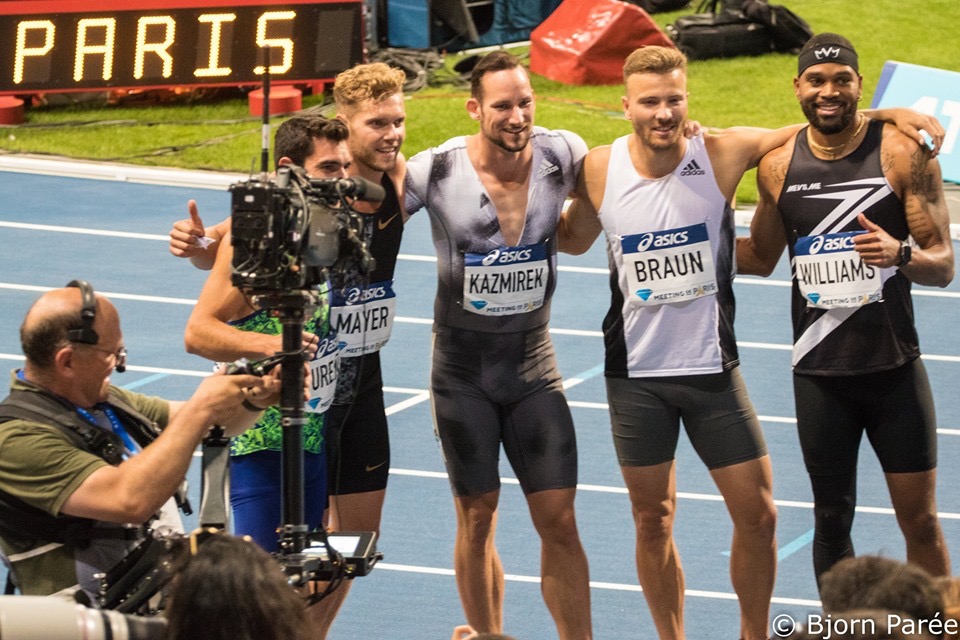
Kevin has, however, been at the forefront of the call for more opportunities for multieventers to compete in small clusters of events at individual meetings, such as the “triathlon” he enjoyed in Paris with Jorge Ureña, Pieter Braun, Thomas Van der Plaetsen, Kai Kazmirek and Devon Williams. The world record holder’s voice has become one of the most influential in sport, alongside Christian Taylor who announced the formation of the Athletics Association following the decision to demote a number of events from the Diamond League programme. With fewer opportunities at continental and global level, the importance of providing opportunities to support combined eventers at each level of their progression has never been greater, and particular mention should go to the likes of the Portarathlon in Greece, the Defi’athlon in Montpelier, X-Athletics in Clermont Ferrand and the Thorpe Cup for providing those opportunities.
Of course, the French contribution to decathlon in 2019 went beyond the world record holder. One of the performances of the year came from Basile Rolnin with an extraordinary decathlon in Ratingen, overcoming injury during the meeting to qualify by just a few points for Doha, behind Kai Kazmirek and ahead of Fredriech Pretorious . Basile had similarly scored a fantastic lifetime best of 6025 in Miramas in February to qualify for Glasgow. But, in both Glasgow and Doha, injury sadly got the better of Rolnin – exiting the heptathlon after a promising Day 1 in Scotland and withdrawing after the 100m in Doha. Bastien Auzeil was the 2019 French decathlon champion, and he and Jeremy Lelievre were tracked throughout the year by the young trio to watch in 2020 – Axel Hubert, Ludovic Besson and Makenson Gletty.
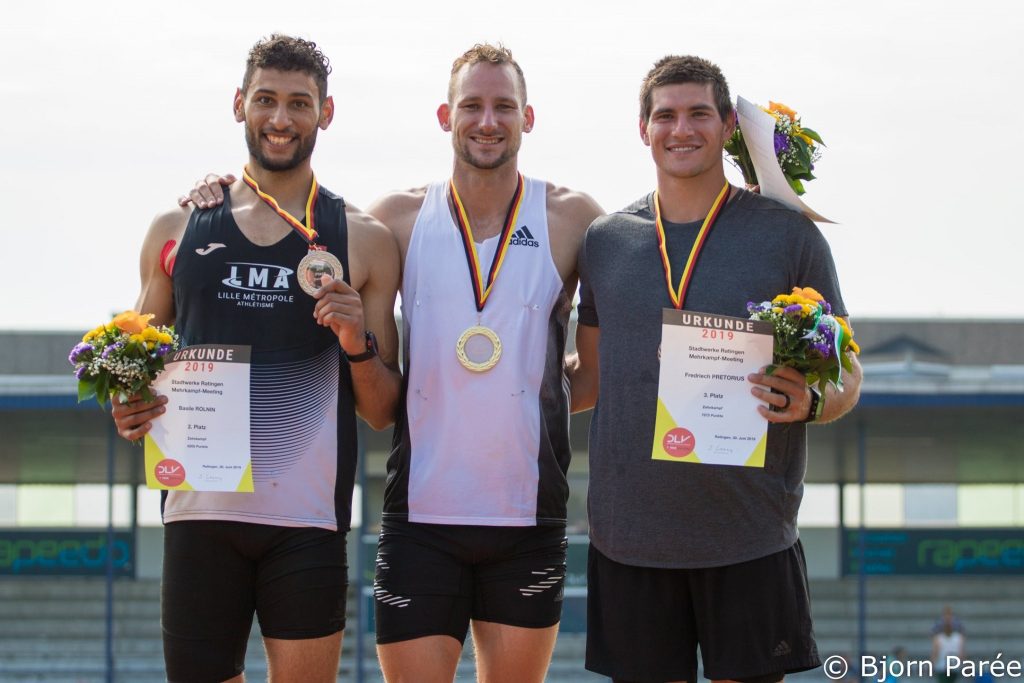
BELARUS
The Belarus presence in 2019 was dominated by the brute force of Vitaly Zhuk and the illustrious return of the Beijing 2008 Olympic Silver medallist – and the owner of the best tattoos in decathlon – Andrey Krauchanka, both of whom competed in Lutsk, with Zhuk winning the overall decathlon. Despite the participation of top tier athletes such as Zhuk, Ureña, Uibo, Õiglane and others across sites in Ukraine and Madeira, it was announced that this year would be the last in the series of these Combined Event team competitions. It is not clear what European Athletics’ plan is to provide alternative opportunities for those combined eventers who are not lucky enough to receive an invitation to the big combined events meetings – no longer eligible for age group championships but not yet at the level to qualify for the reduced fields in major championships.
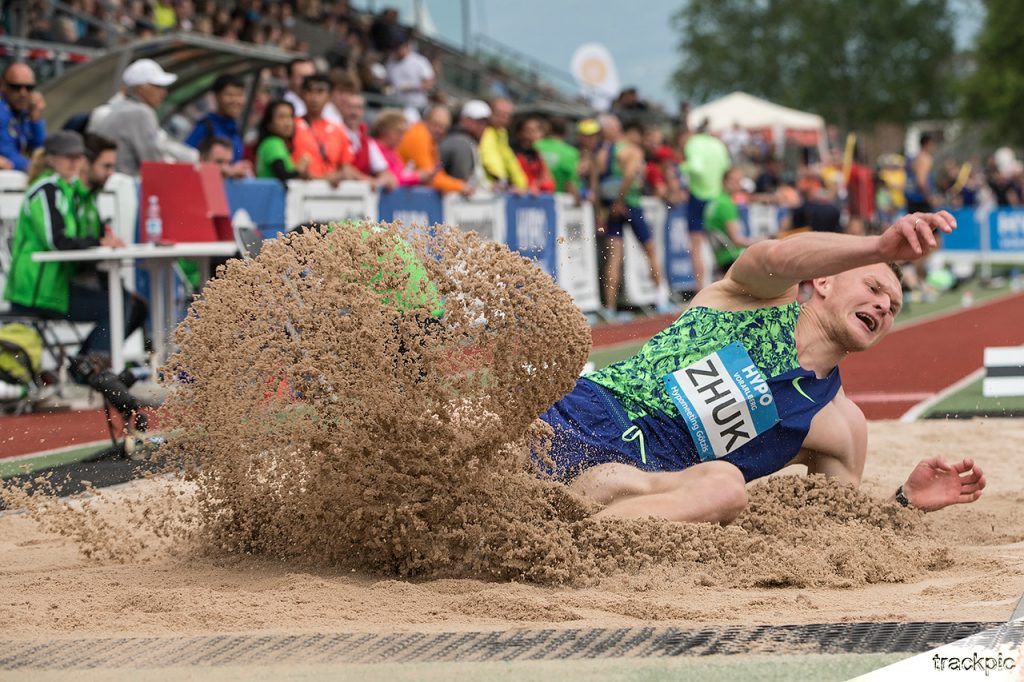
CUBA, VENEZUELA
The Cuban who took the bronze medallist behind Krauchanka in Beijing, Leonel Suarez, might have surrendered his decathlon javelin best to Niklas Kaul, but Lionel finished 4th in Talence, and 5th at the Pan American Games in Lima behind Damian Warner, Lindon Victor, Pierce LePage and Venezuela’s Georgi Jaramillo (who qualified for Doha on the basis of winning the continental South American Championships in May).
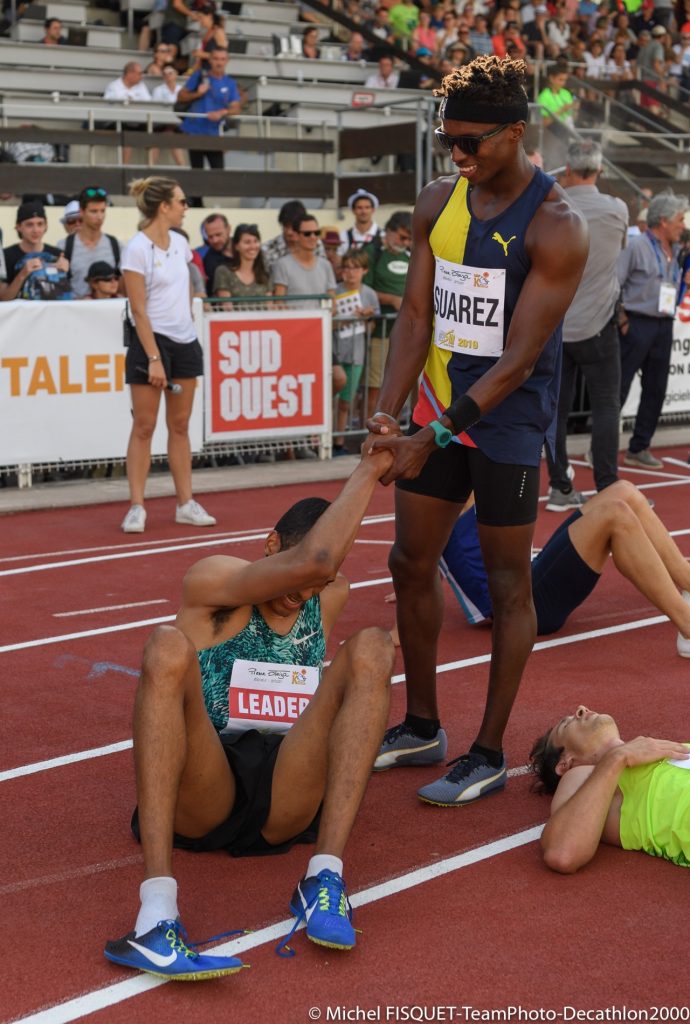
CANADA, GRENADA
It was a bittersweet year for Canada. Damian Warner finished the year with the world’s highest score of 8711, a decathlon world best of 10.12 set in Götzis, along with his 5th win there (matching the feats of five-time winners Roman Sebrle and Carolina Kluft), his second Pan American gold and was also the 2019 Combined Events Challenge winner. The title was his for the taking in Doha, but little went right for Damian and he finished with bronze behind Kaul and Maicel Uibo – another medal appreciated, but not the one he wanted. It was rather a different path for Pierce LePage, who had a stunning victory in Talence in a PB of 8453 and came within 10 points of that to finish his breakthrough year with a superb 5th in Doha. Lindon Victor’s close tracking of Damian in both Götzis and Lima made him one of the contenders for gold at the World Championships, but he was also a casualty of the bizarre decathlon in the Middle East – poised to strike as others faltered but fouling out in the discus.
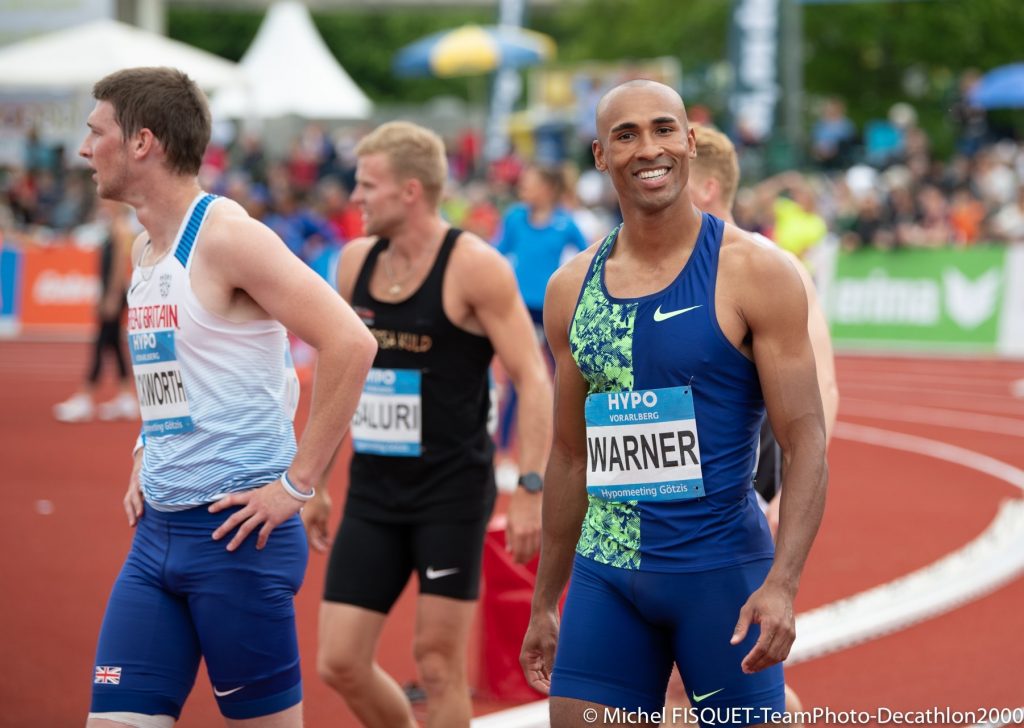
USA
In the US, they had mixed fortunes in 2019. The leading US competitor within the NCAAs was Stanford’s Harrison Williams, who took second behind Johannes Erm of Estonia in the NCAA champs, while Arkansas’ Gabe Moore finished third. Williams also finished 3rd at the US trials and went to Doha for his first world championships experience, while Moore went to Germany with his teammates for the Thorpe Cup. Chris Helwick continued his inspirational comeback as captain of the Thorpe Cup team, rolling over the line in Bernhausen and going viral, while Scott Filip, Jack Flood and Mitch Modin finished 2nd, 4th and 5th respectively, putting up a fight to the end to the winning German team.
At world level, Zach Ziemek scored an outright Doha qualification and the highest US score of the year when he finished second in Talence in 8344, but injury struck him during the high jump at the US nationals, and he was unable to take up his place. Devon Williams took the win in Des Moines, but Doha didn’t go to plan for him with a no-height in the pole vault. And so Solomon Simmons arguably had the best year of all – delivering a lifetime best of 8227 at the US champs and finishing 8th and the highest of the Americans in Doha. It was quite a year for Simmons’ training group in Georgia, as teammate Jordan Gray broke the American decathlon record in California in June in 7921 and inspired a new generation of girls to compete in the ten events.
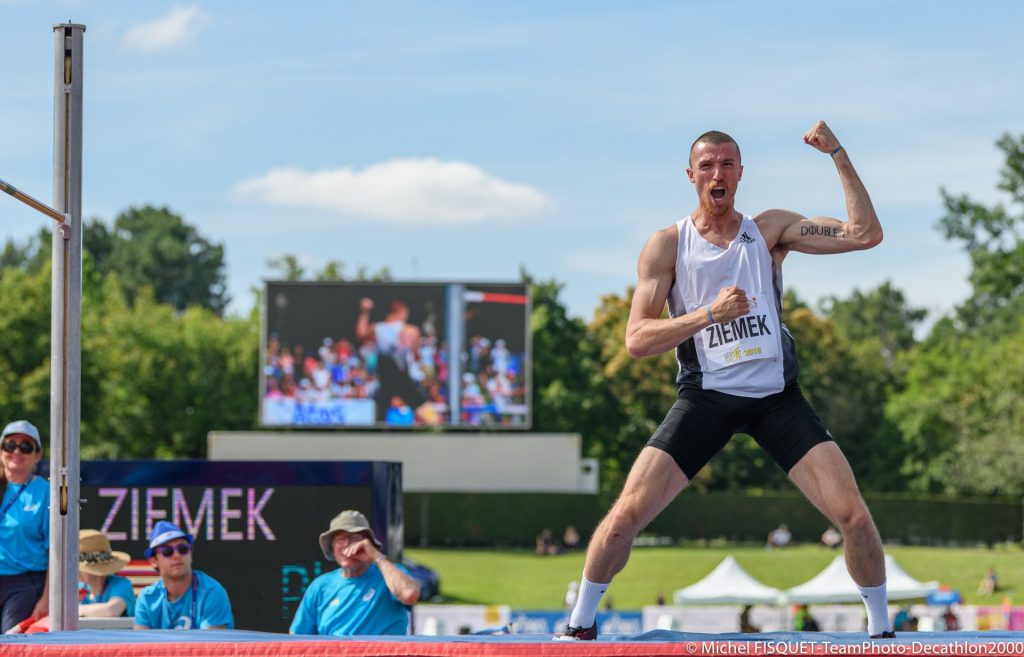
AUSTRALIA, PUERTO RICO
For the Aussies, Cedric Dubler finished 11th in Doha after a long, long season (starting with Nationals at the beginning of April) where he fought tirelessly for a qualification for Doha, succeeding by the skin of his teeth with an invitation at the 11th hour. Both he and World Junior Champion Ash Moloney had their debut in Götzis this year – including a cliff edge high jump in the snow and fog – finishing 8th and 13th respectively. The World Junior Champion also took the Oceania title in June but did not go to Doha. Moloney’s Puerto Rican counterpart, 19-year old Ayden Owens set his best mark of the year with 8130 at the Bryan Clay invitational in Azusa in April, leading the world lists for a short period, but was a DNF at the NCAAs and decided against pursuing a place at the World Championships. After some switching of colleges, Owens is settling into NCAA life and is one to watch in the coming years.
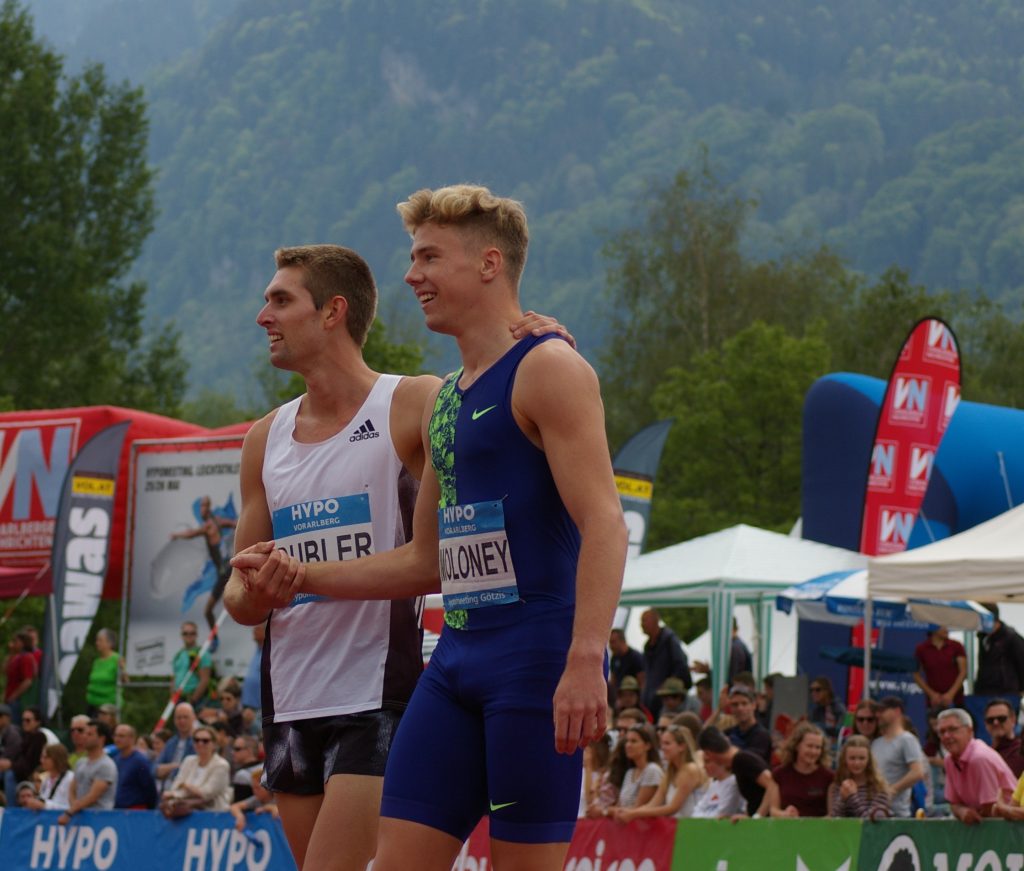
ESTONIA
Like Owens, NCAA champion Johannes Erm did not go to Doha, and instead focused on his dual goals of the NCAA championships and the European Under 23 Championships. He won the former in an Olympic Qualifying score of 8352 and added almost 100 points to that to secure his second Olympic qualifying mark of when finishing second to Kaul in Gävle. But that was only the tip of the Estonian success in 2019. The Estonians won the European Combined Events Team Challenge Super League in Lutsk, with a team of Maicel Uibo, Janek Õiglane, Kristjan Rosenberg and Risto Lillemets. Lillemets made massive improvements to his decathlon bests during 2019, with 7707 to finish 6th in Multistars and 7853 to finish 3rd in Arona – and 8000 would surely have come this year had he not injured his heel during the long jump in Lutsk.
The Estonian who did join the 8000 point club this year was Kristjan Rosenberg, after coming close (7950) against Doležal in Lana and Roe in Arona (7878). Rosenberg finally made it in Lutsk, scoring 8033 to finish fourth overall behind Zhuk, Uibo and Ureña, and the 5th Estonian over 8000 points in 2019. Karl Robert Saluri and Karel Tilga spent the year navigating recovery from their respective injuries, but it was Janek Õiglane and Maicel Uibo who turned their injury-hampered 2018 seasons into successful 2019 seasons. Õiglane’s indoor and outdoor season read like a soap opera, before he finally made it to Doha to finish a superb 6th, just three tantalising points short of 8300.
And Maicel Uibo left every ounce of effort on the track in Doha. After finishing third with an Olympic qualifying score of 8353 in Götzis, in his first decathlon since his DNF at the European Championships in Berlin in August 2018, Uibo then delivered a modest 8181 to lead his country to a win in Lutsk. As midnight approached on the second day of the decathlon in Doha, Uibo was in gold medal position, after a sensational pole vault of 5.40 and a strong javelin of 63.83. With Niklas Kaul looming in the rear-view mirror after his javelin of 79.05 – reminiscent of Erm’s position in Gävle – Uibo fought to retain his lead for every last metre of the 1500m. He couldn’t do enough to hold off Kaul, but he was rewarded with a world silver medal and a PB of 8604.
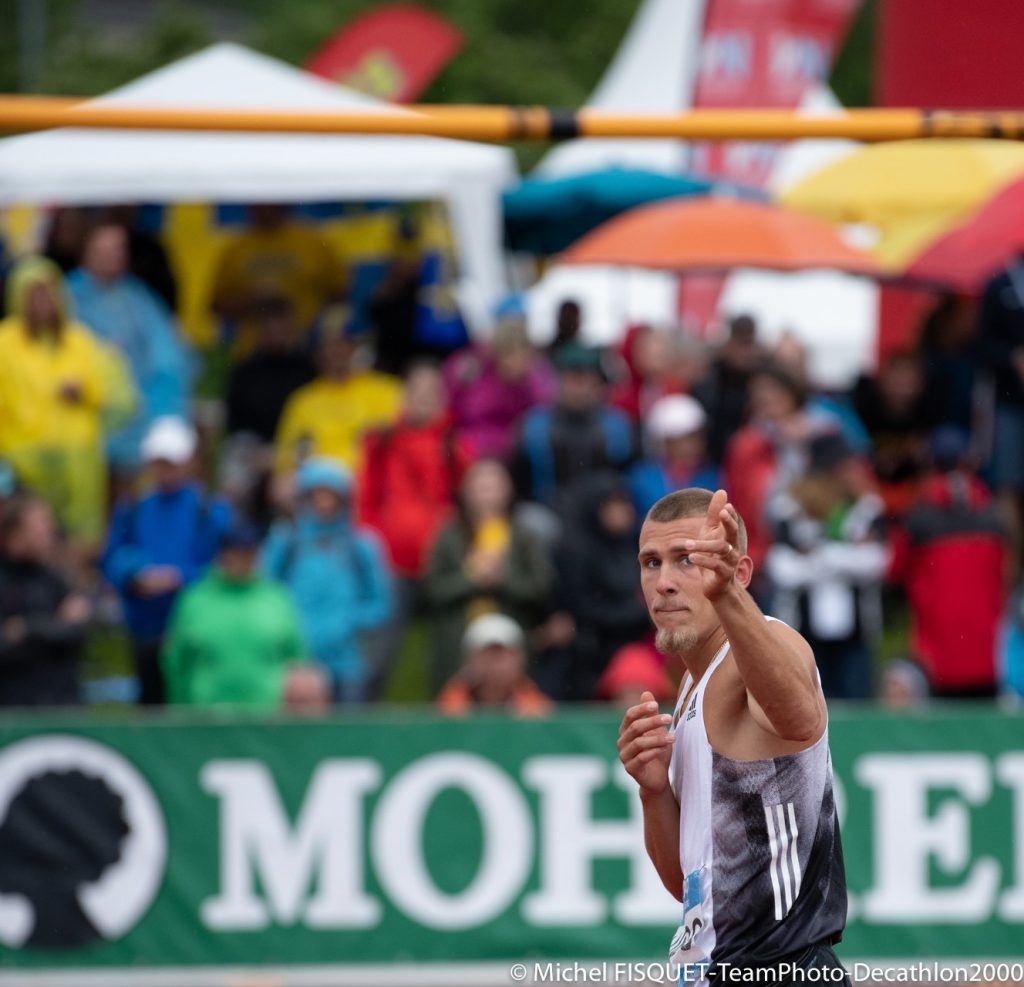
GERMANY
Finally, Germany. The golden boy of the Berlin European Championships in 2018, Arthur Abele, lost his season to injury and Rico Fremuith’s return after his break from competition was also frustrated. Even without two of their stars of recent years, Germany still had 6 men over 8000 points, only one fewer than the USA. Each of those men had an eventful year. Mathias Brugger had a Doha qualifying score from 2018 but the tough German selection system required him to repeat it at Götzis or Ratingen. After a decent opener in Lana, he finished 11th in Götzis in 8060 and no heighted in the pole vault in Ratingen. Manuel Eitel had a storming season, setting over 10 personal bests across the indoor and outdoor season, finishing 9th in his Götzis debut in a PB of 8128, and positioning himself as one of the fastest decathletes on the circuit. He took bronze in Gävle, and in doing so presented to the world a magnificent long jump gif.
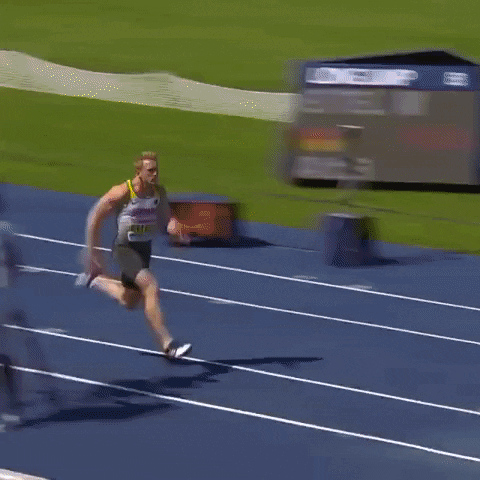
Just ahead of Eitel in the German 2019 rankings was Andreas Bechmann – the breakthrough decathlon performer of 2019. His (brief) world lead of 6017 in Halle in January was followed by 5th place at the European Indoors, and the realistic hope of a medal at the European Under 23s. But a precautionary withdrawal to avoid further injury at the U23 Mehrkampf meeting in Bernhausen in June – the German qualifying event for Gävle – put paid to his selection, and so Jan Ruhrmann took the 3rd spot in the U23 team, finishing 7th in Sweden. But an 8000 points score was brewing, and it came during the Thorpe Cup in September, again in Bernhausen, where Bechmann dominated the competition to win in 8132, a score which included a ridiculous 10m javelin PB. All before his 20th birthday. At U20 level, the Germans also had three top 8 places in Borås, with Leo Neugebauer 4th, Max Kluth 5th and Malik Diakité 8th.
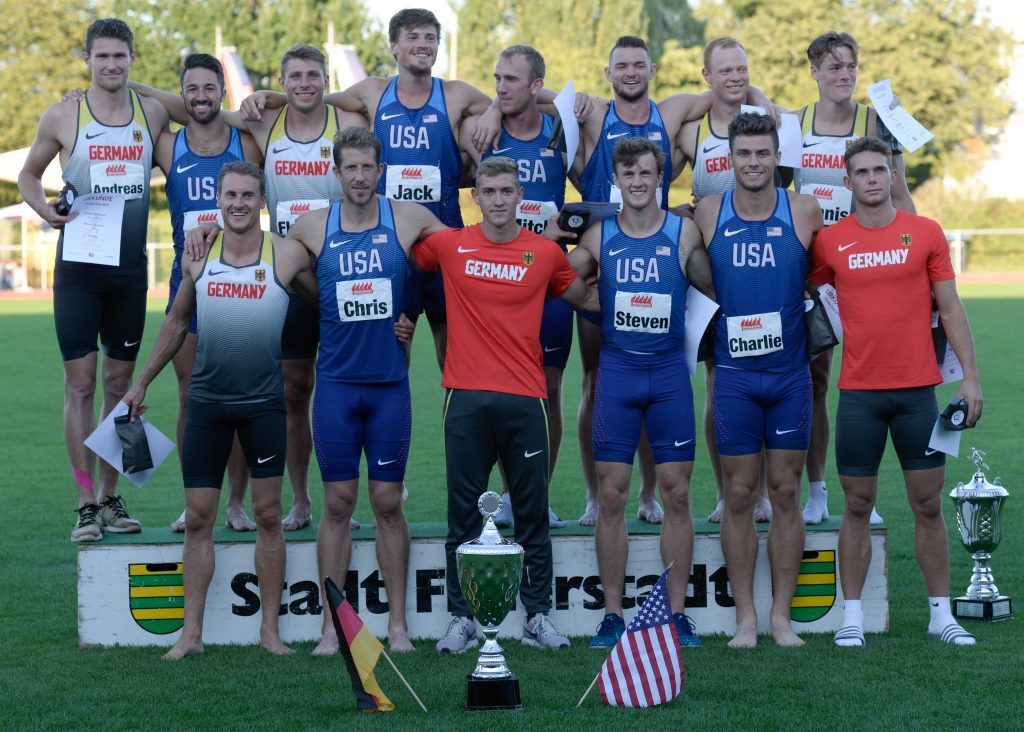
Tim Nowak kept his cool during the year, through ups and downs in the indoor season, through his shoulder injury incurred at Götzis, through the ruthless German qualification system and surviving, unscathed, the drama in Doha to finish tenth in the world, achingly close to Van der Plaetsen in 9th and Simmons in 8th. The 2017 World bronze medallist, Kai Kazmirek got better and better as the year went on. After taking time out in the indoor season to recover from injury, he returned with a flourish in Götzis with a decent 8224 – a score which would have been much bigger had it not been for a broken pole and a fall which left him dizzy. The big score came in Ratingen, as he led from start to finish to win in front of a home crowd in 8444. And then onto Doha, in good shape and ready to challenge. But Kai was one of the high profile casualties in Doha, with a dramatic clatter and exit from the hurdles at the start of Day 2.
And so, to Niklas Kaul. Everything has been said of the youngest ever decathlon world champion that needs to be said. It wasn’t a perfect season – in his own words he felt slow in Götzis (8336), and he didn’t feel in as good shape in Doha (8691) as he did in Gävle (8572). But his words from earlier in the season also sum up his year:
“I want to be a decathlete with no bad events. That would be the perfect story. But, you know, no story is perfect.”
“Every decathlete has a story to tell. And it’s not just the story of one decathlon. It’s a story that progresses over the years. Show people how you’re doing, and how you struggle with injuries or bad training sessions and show them the way of – maybe someday – an Olympic decathlete, and how exciting that is. Every decathlete has to tell these stories. Because once you’re doing decathlon, you don’t want to do anything else.”
